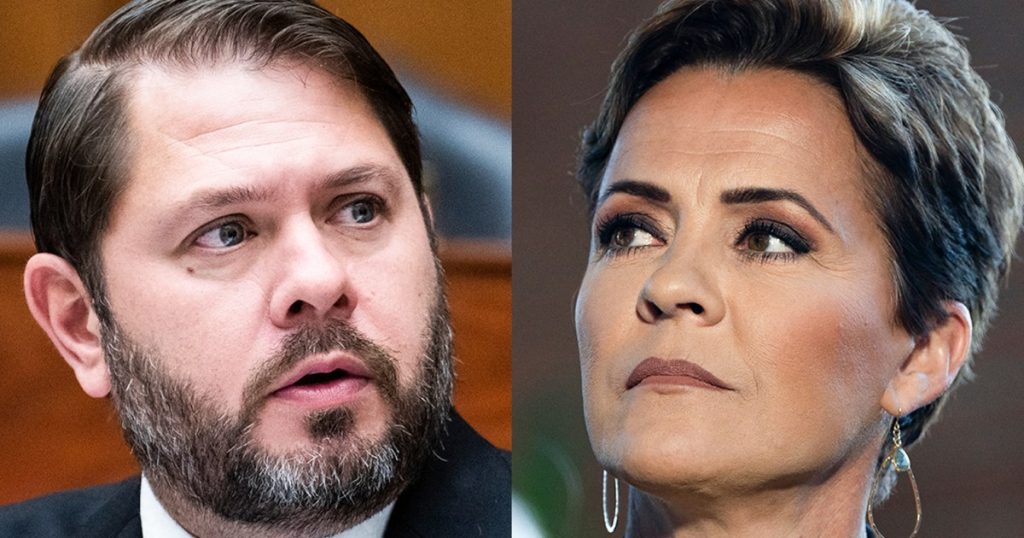Arizona begins its early voting period with a critical Senate debate between Republican Kari Lake and Democrat Ruben Gallego. The race is seen as a microcosm of the deep political divides in the state, with Lake championing pro-Trump politics and Gallego appealing to a more moderate, bipartisan message. Gallego has drawn support from conservatives turned off by Lake’s rhetoric, including her disparaging comments about late Senator John McCain. He has emphasized his progressive credentials and commitment to reaching across the aisle, garnering endorsements from former McCain staffers.
Lake, a former newscaster, has personally attacked Gallego on his family background and voting record, accusing him of extreme positions and lacking willingness to compromise. Gallego has responded by touting his efforts to appeal to a broad range of voters in the diverse state, working to position himself as a moderate candidate. Despite trailing in public polls against Gallego, Lake remains confident in her chances, dismissing poll numbers she deems as unreliable. Both candidates have faced scrutiny over their stances on contentious issues such as border security and police reform.
Gallego has faced criticism over his handling of police reform, particularly in relation to a Justice Department investigation into the Phoenix Police Department. Lake has seized on this issue, claiming that Gallego’s endorsements from certain police organizations are tied to his alleged inaction in addressing the concerns raised by the DOJ. Gallego has defended his position, arguing that police accountability can be achieved without the need for a consent decree. Both candidates have faced challenges in navigating policy discussions and accusations from their opponents.
In addition to policy debates, the Senate race in Arizona has also highlighted broader issues such as election integrity. Lake has raised concerns over the legitimacy of the election process, drawing on past controversies and allegations of electoral fraud. Gallego, on the other hand, has emphasized the importance of respecting election outcomes and upholding democratic processes. The candidates’ differing views on these fundamental principles reflect the broader political climate in the state and the country as a whole.
As the race intensifies, both Lake and Gallego are seeking to appeal to a wide range of voters, including Republicans, Democrats, and independents. Gallego has attempted to present himself as a candidate who can bridge political divides and work towards bipartisan solutions. Lake, on the other hand, has emphasized her support for conservative values and a hardline approach to issues such as abortion and border security. The outcome of the Senate race in Arizona will not only impact the state’s political landscape but could also have broader implications for the future direction of the country.
Overall, the Senate race in Arizona between Kari Lake and Ruben Gallego reflects the complex dynamics of contemporary American politics, with candidates navigating a polarized electorate and contentious policy debates. As early voting begins and the candidates engage in their first and only debate, the stakes are high, and the outcome of the race remains uncertain. Both Lake and Gallego are vying for the Senate seat left open by retiring Sen. Kyrsten Sinema, with each offering contrasting visions for the future of Arizona and the country.













